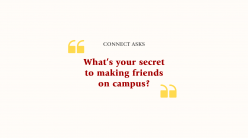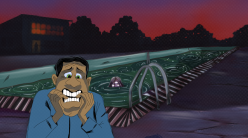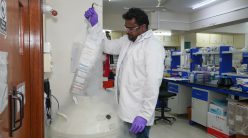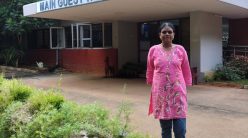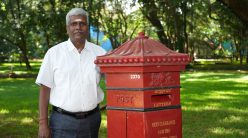Two IISc faculty members reflect on their journeys as teachers after winning the Dr Priti Shankar Teaching Award for 2018, which they received on 15 March this year during the meeting of the Court of IISc

Maria Thaker (Centre for Ecological Sciences)
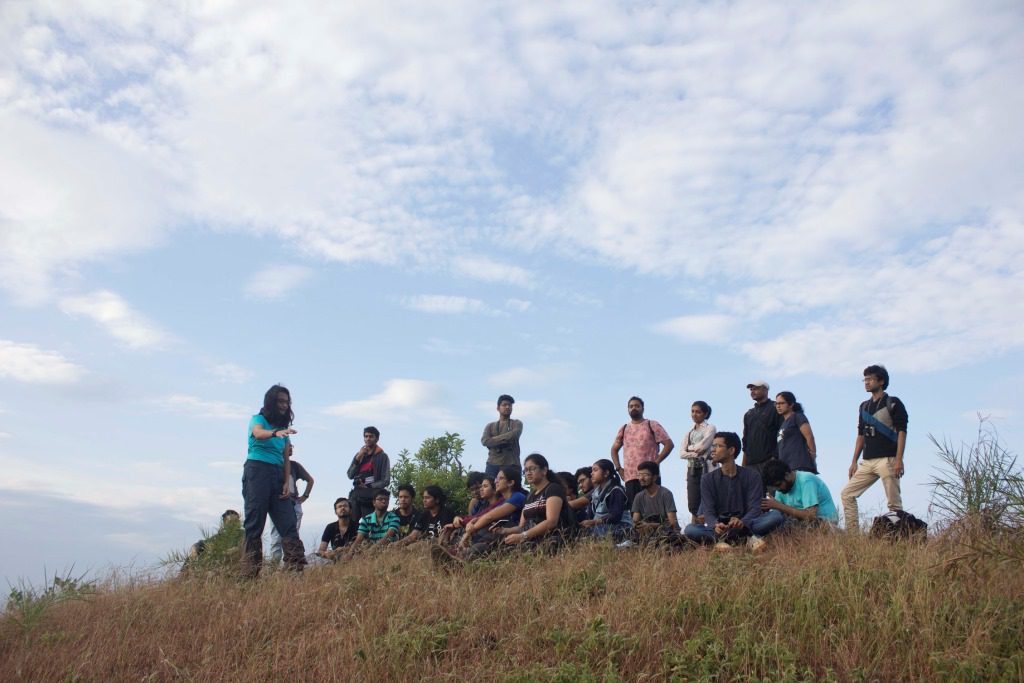
It was 11:30 at night and it was clear that several of the students were not back. Down the main trail, I found two undergraduate (UG) students staring intently at the pink flowers on a Syzygium tree and one furiously writing in a notebook by the light of a headlamp. A PhD student stood a few feet back, scanning the area for snakes and expertly identifying the occasional moth or bee that the others missed. They were not ready to return, and so I walked to the river on the other side of the camp. There, the situation was even more impressive. I knew not to turn on my headlamp and it took a few minutes for me to find everyone in the dark. Perched on rocks along the river, the students were still and silent. And then we all heard it, the call of a Mircrixalus male. One UG student shone his torch upwards, two PhD students nodded, and someone else recorded the location and time on a rather wet data sheet. I stayed to hear three more frog calls, by which time I understood the clever (and silent!) communication system among the students. I left these young ecologists with whispered instructions to be back at camp by midnight.
Ecology is a science full of discovery and adventure. I could teach ecology without any of us leaving the classroom, but that would be a wasted opportunity. And so every year since 2013, the UG Biology students travel with me to the Western Ghats. The goal of this trip is to enable emergent learning. Without cell phone connectivity or reliable electricity, we spend the weekend developing and testing hypotheses, based entirely on what we see around us. It’s unconstrained, curiosity-driven science at its best. What makes this experience so valuable is not just the forest and the bonds we build while collectively removing leeches off our socks. It’s the mixed-level learning. With PhD students and Instructors as mentors, we organically engage in deep discussions about experimental design, confounding variables, and sample size – all of which are key to training a scientific mind that can look beyond published methods or set experimental protocols. The mixed-level interactions where PhD students learn to teach and mentor, while UG students develop their independence is powerful. I’m hoping that our impromptu conversations about academic ethics, research practices, mental health, and sustainability – issues that we never make time for in the classroom – help build a shared culture for open science, collaboration, and integrity. Therein lies my overarching learner-centric pedagogical approach: structured and mentored independent learning.
By fostering creativity in the very process of learning, we empower students to be imaginative – a trait that has sparked some of the best discoveries in science
Over the last few years, I’ve formalised my teaching philosophy and pedagogical approaches. I do this mainly for myself, so that I have clear teaching goals and ways to evaluate the effectiveness of my classes at the end of every semester. Ideally, this should result in me and my courses getting better every year. This introspection takes time and effort. For example, one of my teaching goals is to provide the tools to be an effective communicator of science. This means that I need to provide multiple opportunities for learners to communicate, with enough feedback to improve. Thus, students in my courses have exams, but they also write grants, critique and peer review, give several project presentations, and make mini-documentaries. Each of these activities is semi-structured, with a specific target audience in mind: grant committees, scientific peers and the general public. The goal is to convince these audiences that the science is interesting and worth their time (or money).
On the surface, these exercises may sound pointless and lack the rigour of a serious classroom where information is provided, and papers or exams are the sole modes of assessment. But it’s time we break the misconception that academic rigour comes in a single form. Let’s loop back for a minute to making documentaries. What is the point and where is the learning in this activity? Students must first take the time to observe their environment and find something interesting and curious (discover something new). Then, they must read the relevant primary scientific literature to make sense of their observations (do research) and capture those observations for others to see (record). Finally, they must narrate the story with an informed description (write). All the same steps of a report in a visual form that can be shared with everyone in class. Inevitably, we all learn something new and discover that we are far more creative than we thought we were. By fostering creativity in the very process of learning, we empower students to be imaginative – a trait that has sparked some of the best discoveries in science.
I’ll end here by saying that we have all had “good” and “bad” teachers in our lives. It’s remarkable how much influence they have to either make us love or hate the subjects they taught. In high school, I met Mr David Hoover, a biology teacher at the American Embassy School in New Delhi. His brilliance in the classroom was only surpassed by his seemingly unlimited time, patience, and mentorship. How many high school biology teachers do you know who would wake up at 5 am and help a student track rodents in the Delhi Ridge? My teaching and mentorship philosophy began with his example.

Siddharth Jhunjhunwala (Centre for BioSystems Science and Engineering)
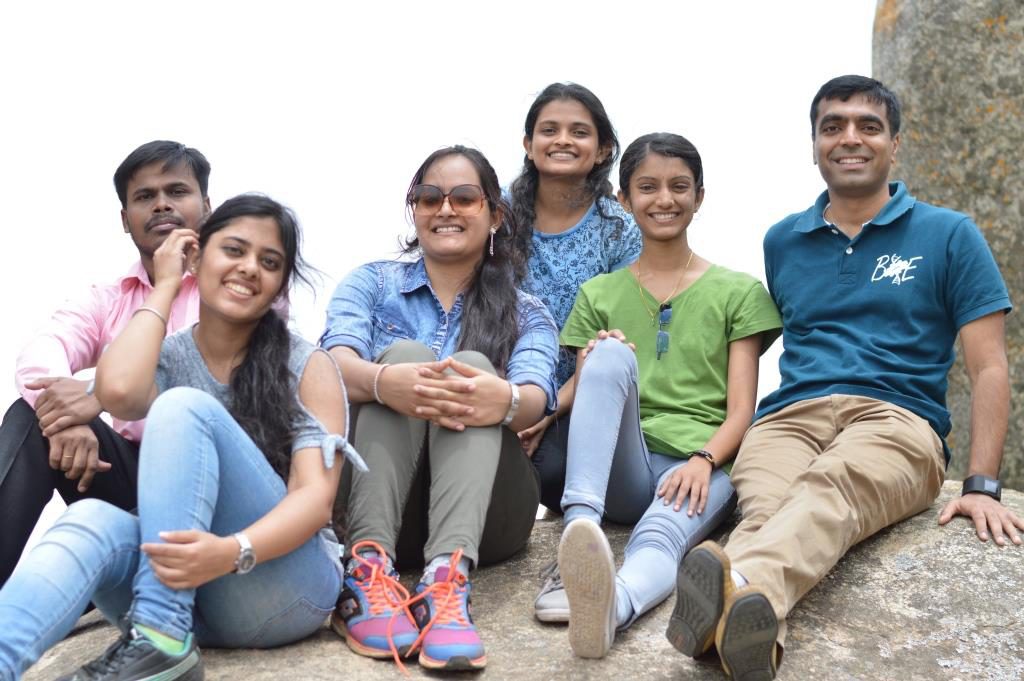
On the occasion of Teachers’ Day (5 September), the school I studied in asked students from 12th standard to teach a class. I taught 10th standard history for an hour, and all I can recollect about that experience was that the one hour went by quickly. I didn’t think much about that day for six years, until I became a teaching assistant in graduate school for a class on Biothermodynamics. In order to prepare for it, I approached Prof John Patzer, who taught the course, for advice on how to handle a class of over 50 students. Two points that were elaborated during that meeting have stayed with me all these years: one, do not proselytise, but rather try to have a discussion with your students, and two, be honest about what you know.
The first piece of advice struck a chord with me immediately. The class I taught in school was to students I knew outside the classroom – I often played cricket with a few of them. Maybe time flew by in that class because I knew the students and was having a conversation instead of trying to instruct them. Since then, I have used the approach of teaching classes through discussions with students rather than merely lecturing.
However, engaging students in discussions is not always easy. Some students are shy and do not want to talk, and others have been brought up in a system that has discouraged talking to the teacher. At IISc, I try to overcome some of these barriers by asking students directed questions, which both encourages and gives them the space to engage in a conversation. The directed question approach may seem intimidating, but I attempt to structure my questions more along the lines of “what are your thoughts on this subject”, or “what comes to your mind when you hear this term”, rather than ask factual questions. My experience using this approach and the anonymous feedback I receive from students at the end of my courses suggest that this brings the students out of their shell and they become more active learners.
I try to overcome some of these barriers by asking students directed questions, which both encourages and gives them the space to engage in a conversation
But classroom discussions have a way of meandering towards topics that are not necessarily relevant to what needs to be taught. This is where I as an instructor have to step in and nudge the conversation towards the topic of relevance. This is hard, and I am still learning how best to do this without abruptly stopping a dialogue among students.
The second piece of advice I received from Prof John Patzer – about the importance of being honest about what I know and what I don’t know – sounded difficult at first but has been easier for me to follow in reality. It begins with an acknowledgement that one can only understand so much about a particular subject, even the one they are teaching. Once that is done, it becomes easier to handle a classroom discussion and address thought-provoking questions from students. In fact, the most fun I have had teaching is when students ask questions that I do not have answers to. It is among the easiest ways to appreciate the limits of my understanding of a particular topic and provides my students and me with an opportunity to re-learn or gain new knowledge. And this, I feel, reinforces the idea that you become an expert in an area only when you teach it.
The idea of learning through discussions raises the question about the role of a teacher: does the teacher merely act as a facilitator for exchange of ideas, or can they be more than that? Let me attempt to answer the question with an experience I had back in graduate school. I took a self-study class on mucosal immunology, as the topic was of relevance to my research. Graduate school is supposed to be the time when you teach yourself, and that’s what I aimed to do. However, with very little prior knowledge of basic immunology, I found mucosal immunology hard to learn by myself. I attended laboratory meetings where students discussed journal articles in this area, and discussed the topic with my colleagues, but I always felt that my understanding of the subject was poor. This became apparent when I attended a lecture on the same topic by a visiting faculty, and then went over videos of pre-recorded lectures (which are now widely available more easily through various sources). Though these lectures did not introduce any new concepts, they put forth the ones presented in the books and journal articles in a way that I found easier to follow. That’s when I understood the importance of a teacher, especially in helping the student learn basic concepts in a particular field. I want to emphasise, however, that I do not mean to belittle self-learning, but taking a class with a good teacher does make learning a lot easier.
